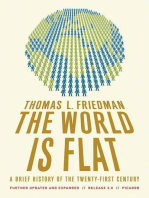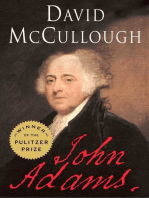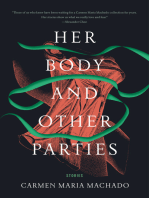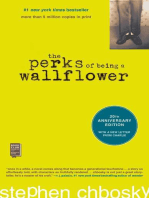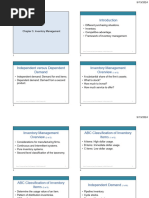Ch.3: Liberalism: Absolute Advantage Theory
Ch.3: Liberalism: Absolute Advantage Theory
Uploaded by
Ahmed ElfeqiCopyright:
Available Formats
Ch.3: Liberalism: Absolute Advantage Theory
Ch.3: Liberalism: Absolute Advantage Theory
Uploaded by
Ahmed ElfeqiOriginal Description:
Original Title
Copyright
Available Formats
Share this document
Did you find this document useful?
Is this content inappropriate?
Copyright:
Available Formats
Ch.3: Liberalism: Absolute Advantage Theory
Ch.3: Liberalism: Absolute Advantage Theory
Uploaded by
Ahmed ElfeqiCopyright:
Available Formats
Dr.
Ahmed El-Feqi Second: Ricardo (Comparative Advantage Theory)
Ch.3: Liberalism - Liberal view & freedom.
- Opposed to restriction on foreign trade.
Adam Smith: Absolute Advantage Theory - Free markets raise productivity & encourage innovation.
- Free international trade creates mutual advantage for all partners.
Philosophy:
- Free individual foster productive capacity. England Portugal
- Self- interest lead individual to specialization and division of labor. Cloth 4 7
wine 5 6
- - Specialization achieves productivity gains.
- Opposed to imposing restrictions on international trade.
The theory: 1) To produce cloths: England needs 4 hrs & Portugal needs 7 hrs
So, England has absolute advantage in cloth
- Countries should specialize in goods in which they had an absolute advantage,
And export it to the trading partner. 2) To produce wine :
- And import goods that the trading partner had an absolute advantage in it. England needs 5 hrs, Portugal needs 6 hrs
So, England has absolute Advantage in wine.
England Portugal England has absolute advantage in both goods: cloth and wine
Cloth 3 hrs/ unit 7 hrs/ unit
But, Depending on Comparative Advantage both countries still benefit from trade.
wine 7 hrs/ unit 4 hrs/ unit
- Absolute advantage mean: the cost incurred to produce a unit of a product. Comparative advantage means: relative efficiency across goods.
- From the above table: 4
Or: The ratio between the cost of 1 unit of both goods in the same country ¿ 5
- Cloth: England can produce it in 3 hrs, while Portugal produce it in 7 hrs.
So, England has a comparative advantage in cloth than wine because the relative
- So, England needs less labor hours to produce a unit of cloth, This means:
cost in England is less than the relative cost in Portugal.
The cost of cloth is cheaper in England (less cost).
- Then, England has absolute advantage in cloth. Then, England will specialize in cloth and export it to Portugal, then import
- SO, England Specialize in producing cloth and export it to Portugal. wine from Portugal.
- England saves (gains) 4 labor hours when export 1 cloth and import 1 wine - The Gains from trade:
From Portugal. - England will gain (save) 1 hour and Portugal gains 1 hour as well.
- Portugal will gain 3 labor hours from trade with England. - So Ricardo concluded that if one country has absolute advantage in both goods,
- Conclusion: International trade is mutual benefit for all countries. then trade still in the interest of both countries.
Dr. Ahmed El-Feqi 1-
Masters in Economics, UEA, England
You might also like
- The Subtle Art of Not Giving a F*ck: A Counterintuitive Approach to Living a Good LifeFrom EverandThe Subtle Art of Not Giving a F*ck: A Counterintuitive Approach to Living a Good LifeRating: 4 out of 5 stars4/5 (5947)
- Never Split the Difference: Negotiating As If Your Life Depended On ItFrom EverandNever Split the Difference: Negotiating As If Your Life Depended On ItRating: 4.5 out of 5 stars4.5/5 (888)
- Grit: The Power of Passion and PerseveranceFrom EverandGrit: The Power of Passion and PerseveranceRating: 4 out of 5 stars4/5 (618)
- The Gifts of Imperfection: Let Go of Who You Think You're Supposed to Be and Embrace Who You AreFrom EverandThe Gifts of Imperfection: Let Go of Who You Think You're Supposed to Be and Embrace Who You AreRating: 4 out of 5 stars4/5 (1109)
- Elon Musk: Tesla, SpaceX, and the Quest for a Fantastic FutureFrom EverandElon Musk: Tesla, SpaceX, and the Quest for a Fantastic FutureRating: 4.5 out of 5 stars4.5/5 (476)
- The Emperor of All Maladies: A Biography of CancerFrom EverandThe Emperor of All Maladies: A Biography of CancerRating: 4.5 out of 5 stars4.5/5 (274)
- Devil in the Grove: Thurgood Marshall, the Groveland Boys, and the Dawn of a New AmericaFrom EverandDevil in the Grove: Thurgood Marshall, the Groveland Boys, and the Dawn of a New AmericaRating: 4.5 out of 5 stars4.5/5 (270)
- The Yellow House: A Memoir (2019 National Book Award Winner)From EverandThe Yellow House: A Memoir (2019 National Book Award Winner)Rating: 4 out of 5 stars4/5 (99)
- Hidden Figures: The American Dream and the Untold Story of the Black Women Mathematicians Who Helped Win the Space RaceFrom EverandHidden Figures: The American Dream and the Untold Story of the Black Women Mathematicians Who Helped Win the Space RaceRating: 4 out of 5 stars4/5 (927)
- The Hard Thing About Hard Things: Building a Business When There Are No Easy AnswersFrom EverandThe Hard Thing About Hard Things: Building a Business When There Are No Easy AnswersRating: 4.5 out of 5 stars4.5/5 (354)
- The Little Book of Hygge: Danish Secrets to Happy LivingFrom EverandThe Little Book of Hygge: Danish Secrets to Happy LivingRating: 3.5 out of 5 stars3.5/5 (419)
- On Fire: The (Burning) Case for a Green New DealFrom EverandOn Fire: The (Burning) Case for a Green New DealRating: 4 out of 5 stars4/5 (75)
- The World Is Flat 3.0: A Brief History of the Twenty-first CenturyFrom EverandThe World Is Flat 3.0: A Brief History of the Twenty-first CenturyRating: 3.5 out of 5 stars3.5/5 (2272)
- Her Body and Other Parties: StoriesFrom EverandHer Body and Other Parties: StoriesRating: 4 out of 5 stars4/5 (831)
- Lorenz QuestionsDocument4 pagesLorenz QuestionsAhmed ElfeqiNo ratings yet
- Documents - Pub Parkin Macro Chap 19 Test BankDocument15 pagesDocuments - Pub Parkin Macro Chap 19 Test BankAhmed ElfeqiNo ratings yet
- Presentation 111Document36 pagesPresentation 111Ahmed ElfeqiNo ratings yet
- Money and Banking Section (1) Hamdy Khalaf-1Document7 pagesMoney and Banking Section (1) Hamdy Khalaf-1Ahmed ElfeqiNo ratings yet
- ch.3 Smith 7ekok Tania A3Document1 pagech.3 Smith 7ekok Tania A3Ahmed ElfeqiNo ratings yet
- Basic Economic Concepts - PPTXDocument38 pagesBasic Economic Concepts - PPTXAhmed ElfeqiNo ratings yet
- Shoe Dog: A Memoir by the Creator of NikeFrom EverandShoe Dog: A Memoir by the Creator of NikeRating: 4.5 out of 5 stars4.5/5 (545)
- The Unwinding: An Inner History of the New AmericaFrom EverandThe Unwinding: An Inner History of the New AmericaRating: 4 out of 5 stars4/5 (45)
- A Heartbreaking Work Of Staggering Genius: A Memoir Based on a True StoryFrom EverandA Heartbreaking Work Of Staggering Genius: A Memoir Based on a True StoryRating: 3.5 out of 5 stars3.5/5 (232)
- Team of Rivals: The Political Genius of Abraham LincolnFrom EverandTeam of Rivals: The Political Genius of Abraham LincolnRating: 4.5 out of 5 stars4.5/5 (235)
- The Sympathizer: A Novel (Pulitzer Prize for Fiction)From EverandThe Sympathizer: A Novel (Pulitzer Prize for Fiction)Rating: 4.5 out of 5 stars4.5/5 (123)
- Yeni Gelen KitaplarDocument749 pagesYeni Gelen KitaplarMona Lisa0% (3)
- Macroeconomics Principles and Applications 5th Edition Hall Lieberman Solution ManualDocument9 pagesMacroeconomics Principles and Applications 5th Edition Hall Lieberman Solution Manualjared100% (40)
- Annual Report 2017-18Document197 pagesAnnual Report 2017-18Rachita PrakashNo ratings yet
- Macro Unit 1 KBAT - Basic Economic ConceptsDocument10 pagesMacro Unit 1 KBAT - Basic Economic Conceptsnarane rampNo ratings yet
- Market StructureDocument18 pagesMarket StructureSaurabhSingh100% (1)
- How Do Consumers Process and Evaluate Prices?: Chapter 14: Developing Pricing Strategies and ProgramsDocument4 pagesHow Do Consumers Process and Evaluate Prices?: Chapter 14: Developing Pricing Strategies and Programsankita_shreeramNo ratings yet
- CH 5 Inventory ManagementDocument6 pagesCH 5 Inventory ManagementSumaya Nimat KhanNo ratings yet
- AP宏观经济学 2005Document32 pagesAP宏观经济学 2005seoyoon1012No ratings yet
- Capitalism Vocabulary and ActivitiesDocument2 pagesCapitalism Vocabulary and ActivitiesÓscar Arnulfo González BarradaNo ratings yet
- Sbi & HDFC MBA PROJECTDocument7 pagesSbi & HDFC MBA PROJECTKartik PahwaNo ratings yet
- Terms Chapter3 EconomicsDocument2 pagesTerms Chapter3 EconomicsCarla Jamina Ibe50% (2)
- Book ListDocument6 pagesBook ListShimeque SmithNo ratings yet
- Teoria de Comercio Internacional KrugmanDocument56 pagesTeoria de Comercio Internacional KrugmanBernardo MorenoNo ratings yet
- RESEARCH FINAL Revised 1Document60 pagesRESEARCH FINAL Revised 1Ian MarianoNo ratings yet
- General Equilibrium PDFDocument42 pagesGeneral Equilibrium PDFArchana RajNo ratings yet
- DLL - Orma - September 19-23, 2022Document4 pagesDLL - Orma - September 19-23, 2022Nelvin VallesNo ratings yet
- 298 ExamtimetableDocument71 pages298 Examtimetableʚ VÎÑÕTH STÃR ɞNo ratings yet
- Exchange Magazine 1Document18 pagesExchange Magazine 1Jean Placide BarekeNo ratings yet
- Lund - University International Prospectus 2019 20 PDFDocument55 pagesLund - University International Prospectus 2019 20 PDFGaurav MehraNo ratings yet
- Dow TheoryDocument3 pagesDow TheoryJustin LamNo ratings yet
- ECO301 Lecture W4-2 (Risk and Term Structure of Interest Rates)Document28 pagesECO301 Lecture W4-2 (Risk and Term Structure of Interest Rates)Key OnNo ratings yet
- Assignment On Fundamental Analysis - Industry AnalysisDocument7 pagesAssignment On Fundamental Analysis - Industry AnalysisDhairyaa Bhardwaj100% (1)
- Solution Manual For Macroeconomics 6/E 6th Edition Olivier Blanchard, David W. JohnsonDocument43 pagesSolution Manual For Macroeconomics 6/E 6th Edition Olivier Blanchard, David W. Johnsonbronoyussy85100% (1)
- GBS-PPT Deck - S 1-4Document24 pagesGBS-PPT Deck - S 1-4Akshay PNo ratings yet
- Macroeconomics 9th Edition Abel Solutions Manual DownloadDocument20 pagesMacroeconomics 9th Edition Abel Solutions Manual DownloadMichael Nickens100% (21)
- Demand EstimationDocument27 pagesDemand EstimationAnonymous FmpblcLw0No ratings yet
- Role of Various Institutions in CSRDocument9 pagesRole of Various Institutions in CSRSAURABH KUMARNo ratings yet
- Case Study AnalysisDocument30 pagesCase Study AnalysisSudhir KhopeNo ratings yet
- W20 (CH29) (3Q)Document4 pagesW20 (CH29) (3Q)Mohammed NajihNo ratings yet
- A Case Study On Fast Ion Battery: Group-62-BDocument22 pagesA Case Study On Fast Ion Battery: Group-62-Basifabdullah khanNo ratings yet
















